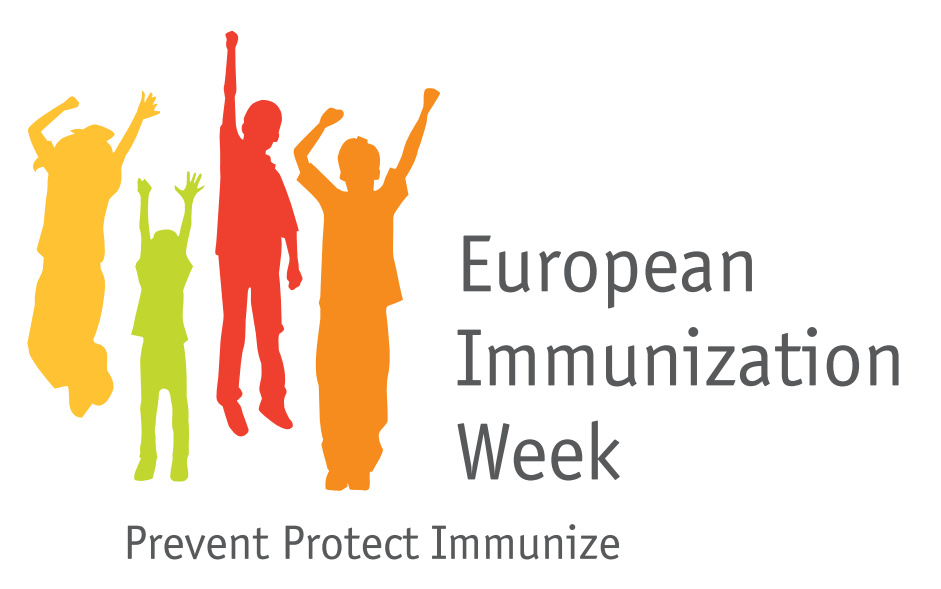
What comes to mind when we think about vaccination? It should be protection, wellbeing, health and achievement.
The World Health Organisation states that only clean water (a human right) ranks as highly as vaccination in terms of the greatest impact on health globally.
In this country we have an exceptional vaccination programme offered through the NHS, and we need to ensure that as many people as possible are taking up their chance of protection against disease.
This week is European Immunisation Week, a chance to focus on the importance of vaccination throughout our lives.
Vaccines are not just for babies, and the more people we can get to take up vaccination at every stage of life, the better protected we’ll be.
During this week, we’ll highlight the vaccines on offer through the NHS vaccination programme, showing what we need to do to increase uptake and keep the population protected.
Which age groups are offered vaccination in the UK?
The NHS vaccination programme offers vaccines from birth up to old age.
Among a number of jabs, babies are offered the 5-in-1 vaccine at 8 weeks old, which protects against diphtheria, tetanus, whooping cough, polio and Hib (Haemophilus influenzae type b).
Babies are also vaccinated rotavirus (a very nasty stomach bug that can be fatal) which has seen a 70% fall in cases since the vaccine was introduced.
As babies grow into toddlers and then go off to school, more vaccines are offered including MMR and the pre-school booster, continuing into teenage years, when the MenACWY vaccine is now given.
Protecting against against four different causes of meningitis and septicaemia, the MenACWY programme is given to teens and also to first time university students.
In later life, vaccines are offered to protect against pneumococcal (PPV), shingles and of course flu, which is offered to people at all ages from childhood onwards, including pregnant women.
There is detailed information on the NHS vaccination programme available through NHS Choices.
What vaccines have we introduced recently?
We are still developing and introducing vaccines to both respond to outbreaks and to generally increase our protection against disease.
In 2008, a human papilloma virus (HPV) immunisation programme was introduced across the UK to routinely offer a course of vaccine to all girls aged 12 to13.
The HPV vaccination programme’s primary aim is to reduce the incidence of cervical cancer in women and is delivered largely through secondary schools.
As mentioned above, the MenACWY vaccine was introduced in 2015 in response to a rapid increase in cases of invasive meningococcal group W disease, which was declared a national incident.
Teenagers are now offered the jab aged 14 in school year 9, and a catch-up programme was introduced which is ongoing for first time university students. By being able to respond to the incident with a vaccine programme, we’ve seen a steady decline in cases.
The NHS also introduced a meningitis B vaccination for babies in 2015, integrating it into the childhood vaccination programme.
The vaccine protects against meningococcal group B bacteria, which are responsible for more than 90% of meningococcal infections in young children and England was the first country in the world to offer routine vaccination.
What do we need to do now to keep as many people protected as possible?
As the information in this blog shows, we have a comprehensive vaccination schedule and we are continuing to develop and grow this where possible.
While we are seeing great successes in vaccination uptake, such as 89.4% coverage for the HPV vaccine in our 2014/15 reporting and preliminary reporting last year showing 84.1% coverage of MenACWY in year 9 students, we need to keep pushing these numbers higher.
When we get vaccinated, or take our children for their vaccinations, we not only protect ourselves and our loved ones.
If vaccination numbers are high enough, we see ‘herd immunity’ - the resistance to the spread of a contagious disease within a population, which comes about if a high number of people, are immune to a disease.
Vaccination is often the cause of this, and it can’t be expressed enough how important it is for our health and wellbeing and our safety.
We want people to think about vaccination when they think about their health and the health of their families. By making sure everyone has the information they need on vaccines, we have a better chance of hugely reducing and ultimately eradicating nasty and potentially fatal disease.
